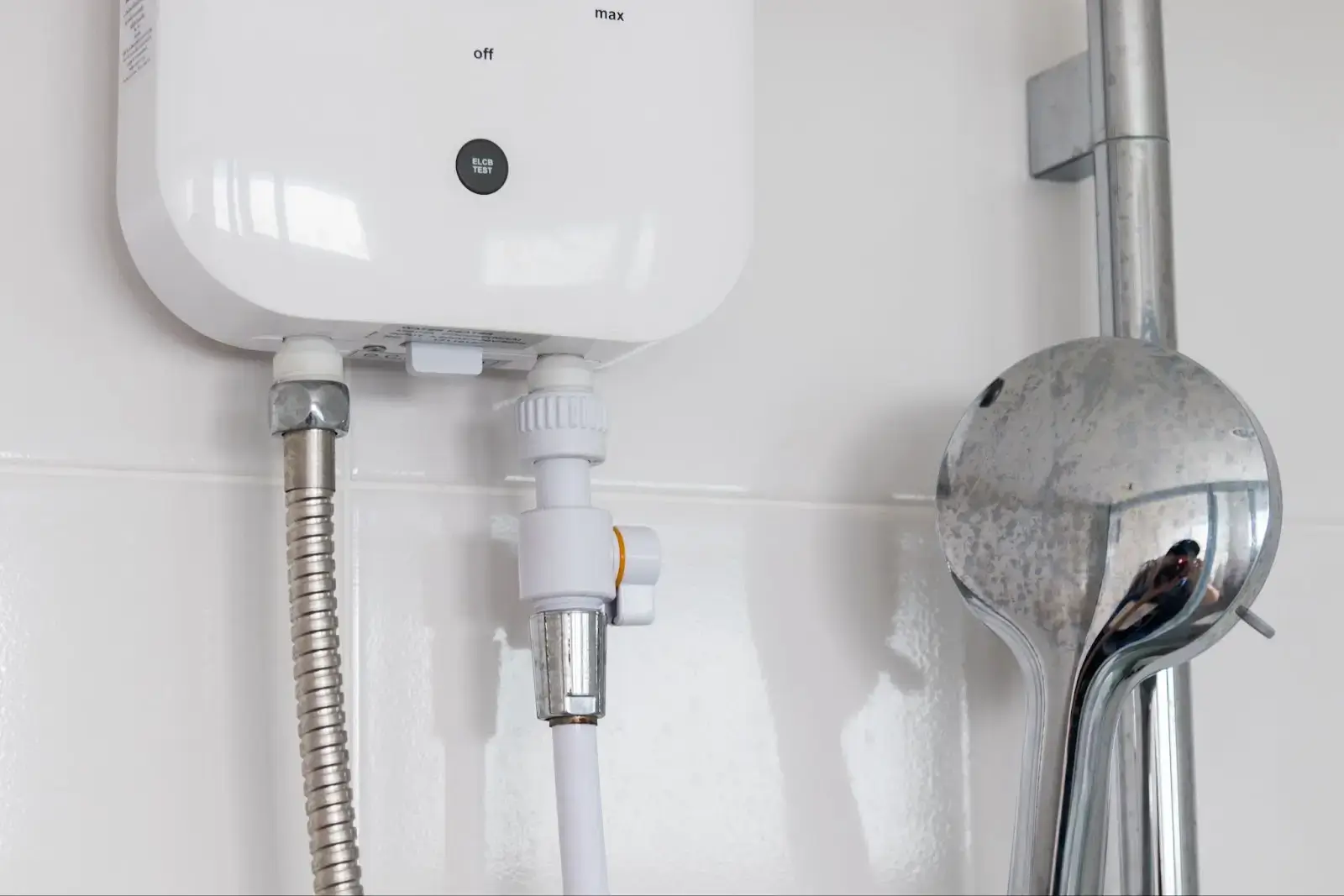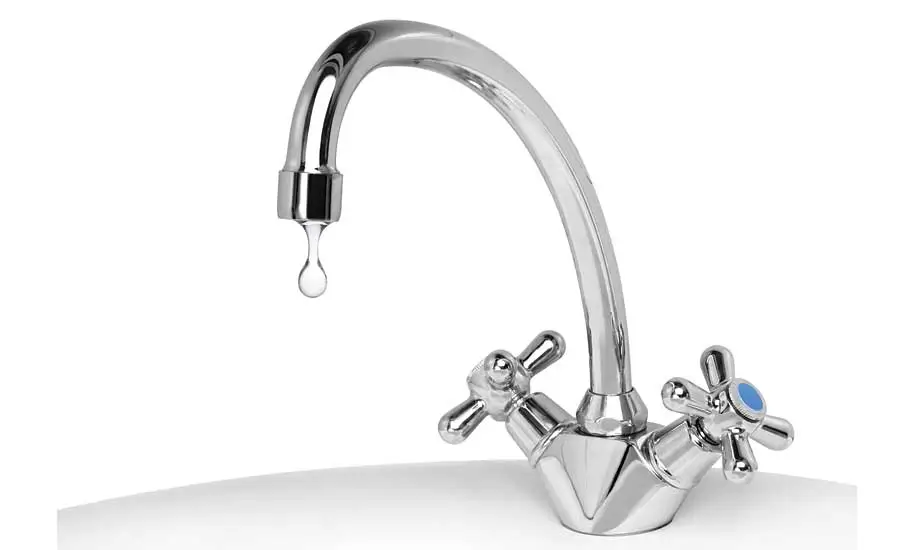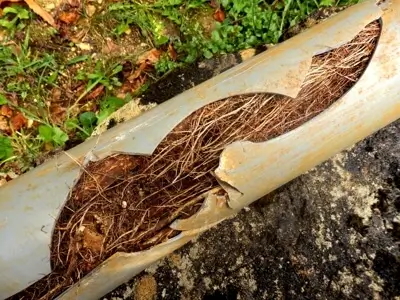Spring is a time of change and renewal, increasing temperatures and humidity. With rising temperatures and humidity levels, one might ask: “When should I turn on my AC?”
The beginning of spring stays moderately cold, as it brings continuous rain showers. Many residents choose to turn on their systems around the middle of spring when the sun decides to show itself more.
However, with our ever-fluctuating climate, it’s best to wait a few more weeks.
While you can turn your air conditioner on any time, prematurely turning systems on may expose your home to various hazards.
Read on to find out more about the importance of delaying the use of your air conditioner.
Can I Turn My AC ON in Spring?
Absolutely! That’s your air conditioner. You can do whatever you want with it. However, there is an optimal and detrimental timing for utilizing your air conditioner.
When you turn your AC on and what you do beforehand makes all the difference. They can determine your air conditioner’s overall efficiency and life expectancy. Being too hasty may negatively impact your AC system.
You can turn on your AC in the spring, but it's important to do so at the right time and under the proper conditions.
It is prudent to wait until temperatures even out first. Additionally, you must conduct primary inspections before cycling your air conditioners on again.
When Is the Best Time to Turn ON My Air Conditioner in Portland, Oregon?
Winters in Oregon aren’t too cold. They are rainy and humid, with lower temperatures tagging along the easterly breeze. However, subzero temperatures seldom occur in Portland, saving your air conditioner from frosting or icy buildups.
Still, it may need a little preparation after laying dormant for a few months. Take some time to inspect your unit before turning it on.
There isn’t necessarily a “perfect time” to use your air conditioner. The best time to turn your air conditioner on is when you need it most, after it has been inspected, examined, cleaned, and tuned-up.
How to Avoid Prematurely Turning Your AC System ON
While some of us will soak up the sun outdoors, some of us prefer solitude indoors. Maybe staying indoors makes you feel safer from various allergens, spring is allergy season, after all.
If we’re not careful, we may be just as susceptible to pollen and dander in our homes as we are outdoors.
Turning systems on without preliminary inspection and evaluation may spread all sorts of allergens in your home. Running your cooling system when outside temperatures are still low is also inadvisable.
There may be lightfrost and other particle buildups on or within your AC system. Frozen components may cause other elements to overheat. Avoid damaging your unit by remedying frosting and clogging before using your air conditioner.
It's crucial to be thorough when inspecting your AC unit for any signs of frost before turning it on. Remember, not all contamination and other problems are visible to the untrained eye.
Frost can have a significant impact on the efficiency and operation of your AC unit. It can cause the unit to struggle, reducing airflow and leading to mechanical failure.
Are There Any Indicators I Should Look for Before Turning My AC ON?
Before turning on your AC, there are several indicators that you should look for to ensure that it operates effectively and efficiently throughout the warmer months.
Some indicators are more easily noticeable than others and may require different levels of skill or effort to expose.
Here are some signs you can see at a glance:
- External frosting on your outdoor AC unit
- Muddy components
- Dirty buildup
- Leaves and other debris buildups
You can easily clean the exterior of your AC unit by gently spraying it with warm water and wiping it with a damp cloth.
Other indicators may hide beneath the surface and require more specialized skills or tools to detect. For example:
- Rodents that crawl inside your AC unit for warmth during the winter. You may need to check for them before turning on your AC!
- Creepy crawlies
- Leaves
- Othergunk that has accumulated within your AC unit during the offseason.
It's crucial to clean these out as they can hinder the AC's performance and lead to mechanical failure.
Additionally, other things are harder to notice and may hinder your AC's performance later. These can include low refrigerant levels, clogged air filters, ductwork leaks, and electricalmalfunctions.
You may be able to inspect your ductwork or peer into your air handlers yourself. However, you might need the help of a professional HVAC contractor to diagnose and fix any issues you find.
Give Your Entire AC System a Thorough Inspection
Before turning on your AC in the spring, it's essential to inspect it thoroughly for any signs of wear and tear or damage.
Over time, air ducts and air vents can become contaminated with dust, dirt, and other debris.
This reduces airflow and makes your AC unit work harder. To prevent these issues, your air ducts must be inspected and cleaned.
Air filters are responsible for trapping dust and other particles, preventing them from circulating through your AC system and into your home or office.
Dirty air filters can also lead to reduced airflow and decreased efficiency, so replacing them regularly is essential.
Air handlers facilitate air distribution throughout your home. They can become clogged with pollutants and residual contaminants. Thoroughly cleaning your air handlers can keep your entire AC system running smoothly.
Can I Clean My AC System?
Yes, you can! You can clean the accessible components, at least. Unless you have an extensive background in facilitating HVAC maintenance, we don’t recommend you dismantle your AC units for DIY efforts.
One of the simplest and most important maintenance tasks that you can perform is cleaning or replacing your air filters.
Depending on the type of AC unit you have, you might need to replace rather than clean system filters. While mini-split and window types have accessible air filters right behind their front panels, centralized systems have filters atop vents.
You must also clean your air vents. Remove the filter atop the vent before dismantling it from the wall. Wipe each vent down with a damp cloth or use a wet-dry vacuum to extract particles of all sizes from their surface.
Remember, your outdoor unit requires just as much attention. It can be clogged up with leaves and other debris.
You can easily clean your outdoor units by carefully removing debris surrounding them. You may also use a microfiber cloth to wipe away any dust, dirt, and other gunk.
Cleaning each of your AC units is an essential aspect of holistic system maintenance. Below are some general tips you can apply to any air conditioner.
Still, you shouldn’t guess how you can apply them to your AC system. Remember, each air conditioner is different, with varying components. Your air conditioner might require specific handling techniques that we may overlook, causing damage.
It’s important to read the user manual for safety precautions before performing any maintenance tasks on your AC system.
AC Maintenance Tips:
- Clean your air filters.
To clean reusable air filters, you should first remove them from the AC system and use a vacuum or hose to remove loose dust or debris. Next, soak the filter in a solution of mild soap and warm water for ten minutes.
You can conjure up a homemade cleaning agent to give your filters a deeper clean with bakingsoda and whitevinegar. After soaking your filters, hang them dry before saturating their surface with baking soda.
Add some distilled white vinegar into a spray bottle and spray it all over the filter. You may observe it beginning to emulsify. Don’t worry, that’s normal.
Wait until it emulsifies completely before proceeding. The bubbling should subside after a few minutes. Submerge your air filter back into warm water for another ten minutes.
Once that’s done, rinse it thoroughly and let it dry completely before reinstalling it. For disposable filters, you can simply remove the old filter and replace it with a new one.
- Listen for noises when you first turn the AC on.
If your AC system struggles to operate efficiently, it may produce unusual sounds.
You may notice buzzing, banging, hissing, gurgling, clanging, or other noises. While some can be charged to system operations, lingering and obnoxious noises indicate underlying issues.
Persistent clanging and banging indicate dislodged components. They may bang around our AC systems, damaging more internal components. Dislodged parts can tear through supply lines and blower fans, which are both critical to AC operations.
Hissing may indicate clogs and blockages around blowers, inlets, and outlets. It’s important to unclog residues and debris, extracting hindrances from your AC system, to regulate circulation.
Clogs hinder airflow and build air pressure. When slowly released, static pressure sounds like hissing or whistling. It might prompt homeowners to look into their air conditioners, where they might find torn supply lines and cracked components.
Various sounds, including hissing and bubbling, may indicate issues like refrigerant leaks, which can be particularly concerning!
- Inspect your unit for any leaks.
If there are any tears and abrasions in your supply lines, it may indicate a leak! Refrigerant leaks can lead to poor-quality air conditioning and unusual noises coming from your system.
Internal leaks, such as refrigerant leaks, sound like gurgling or whistling. They can reduce your unit’s cooling capacity, increase energy consumption, and even pose hazardous exposure.
Increased exposure to harsh chemicals brings various health risks, especially to those of us with more sensitive skin. We may inadvertently ingest them without knowing it. You may develop sore throat, nausea, and canker sores.
Not all leaks come from coolant leaking out of supply lines. Visible leaks may also stem from condensation. Negative pressure can trap droplets from the air collected, filling more than your air conditioner’s drain system can handle.
It may leak from the indoor or outdoor unit, creating puddles around your AC units. Report these leaks immediately before they leave lasting impacts.
- Find reputable HVAC contractors for AC maintenance and repairs
You can take on some maintenance tasks on your own, of course. However, doing more complex tasks can be dangerous without the proper knowledge and equipment.
Don’t risk damaging your AC system by avoiding professional services!
Some aspects of maintenance require the expertise of a professional HVAC contractor. It's best to leave the comprehensive cleaning and examination tasks to experts with the training and experience to handle them safely and effectively.
Risks of Haphazard DIY Maintenance and Repairs
Some homeowners attempt to dismantle air handlers and other major electrical components themselves. DIY maintenance and repairs might seem like a good idea to save money, but it might end up costing you an arm and a leg later…literally.
- Injuries - There’s a high risk of electrocution, carbon monoxide poisoning, and burns
- Damage - Improper handling could lead to your unit burning, or worse - your home!
DIY isn’t the only danger here. Amateurish efforts can also lead to the same dangers!
Should I Hire Professional Assistance for My AC in Spring?
You don’t always need the help of professionals, especially when you have the relevant experience and tools.
However, we don’t always have the right tools or equipment to handle more comprehensive maintenance tasks. We might cause more damage by attempting haphazard DIY projects.
While performing AC maintenance tasks on your own can save you money in the short term, attempting to perform complex tasks without proper training and experience can be dangerous.
It can also lead to serious risks and may cost more in the long run!
Need the Help of Reputable HVAC Contractors in Portland for Spring AC Maintenance?
Reliable contractors are essential for ensuring your HVAC systems work effectively and efficiently. Our HVAC systems play a vital role in maintaining a comfortable indoor environment.
Malfunctions can lead to discomfort, reduced productivity, and even health issues. As such, it's important to have a reliable contractor to provide regular maintenance and emergency repairs when necessary.
Pre-season maintenance is a helpful tool in gearing up your AC system. Enlist professional inspection and maintenance services to safely turn your AC on during spring.
Sunset Heating & Cooling
The HVAC technicians at Sunset Heating & Cooling have the necessary expertise, experience, and equipment to diagnose and fix issues within your HVAC system.
The Sunset Heating & Cooling team can provide your home with efficient AC Maintenance services in Portland. Get reliable HVAC services at your convenience any day of the week!
Sunset technicians aren’t limited to maintenance services. We don’t just clean your air conditioner, we make sure they hold up against rising temperatures.
Our extensive services include AC repair, replacement, maintenance, and tune-ups.







